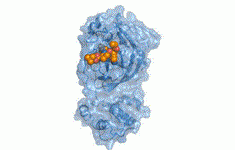
All too often, society construes pregnancy and parenthood as a smooth ride.
The typical image of new parents sees them shrouded in a bubble of universal happiness and baby bliss, and they’re expected to be okay – and coping – at all times.
But that isn’t always the case. The changes that becoming a parent brings can be overwhelming, and postnatal depression is an issue that impacts millions around the world.
Now, in a landmark moment for female healthcare, the US has approved the first pill to treat postnatal depression.
Developed by Biogen and Sage Therapeutics, Zurzuvae helped people feel better within a few days of use in tests, and is set to be available towards the end of 2023.
But what is postnatal depression, what are the symptoms, and how does this new medication work?
What is postnatal depression?
A form of depression that parents might experience after having a baby, postnatal depression is often conflated with the so-called ‘baby blues’ – or feelings of sadness or anxiety experienced in the first week after giving birth.
But ‘baby blues’ typically go away after two weeks, whereas if symptoms are persistent, it could be postnatal depression.

The condition can severely impact a parent-child relationship, as well as a parent’s ability to return to normal functioning. It’s increasingly common, but a significant amount of stigma remains.
Published in 2022, one study found that approximately one in seven women can develop postnatal depression – also known as postpartum depression. However, the NHS places this figure at closer to one in every ten women, noting that the condition can also impact partners as well as the carrying parent.
Further research published in 2006 revealed that around 50% of new parents go undiagnosed for fear of disclosing their struggles to family members.
What are the signs and symptoms of postnatal depression?
According to the NHS, common symptoms might include:
- Feeling sad or having a low mood
- Feeling agitated
- Loss of interest in activities usually enjoyed
- Having low energy or feeling tired all the time
- Insomnia, alongside feeling sleepy during the day
- Difficulty with concentration and decision-making
- Comfort eating or losing your appetite completely
- Experiencing negative thoughts and low self-esteem, as well as feelings of guilt, hopelessness and self-blame
- Feeling anxious that harm may come to your baby or having problems bonding with your baby.
If you’re worried you’re depressed, you’re advised to speak to a GP, midwife or health visitor as soon as possible. Many midwives and health visitors have been trained to recognise postnatal depression along with techniques to help.

How does the new pill work?
Until now, treatments for postnatal depression have been available only as an intravenous injection in the form of Brexanolone, first approved by the US Food and Drug Administration (FDA) in 2019.
Requiring a 60-hour intravenous infusion at a hospital, this treatment is incredibly costly, with an approximate price tag of $34,000 (£26,670).
However, this treatment has not yet been approved in the UK, with the NHS currently offering self-help, talking therapy or antidepressants as treatment.
Trials of Zurzuvae found that those who took the drugs once a day for 14 daysexperienced fewer signs of depression over a four-to-six-week period, with many showing noticeable benefits within three days.
Unfortunately, there isn’t any news on when or if the pill will be dropping in the UK, but the companies involved are also seeking its approval for major depressive disorder (MDD) or clinical depression.
The FDA has said additional studies are needed to extend the approval to these conditions, which would widen its usage to a larger section of the population.
Need support?
For emotional support you can call the Samaritans 24-hour helpline on 116 123, email [email protected], visit a Samaritans branch in person or go to the Samaritans website.
If you’re a young person, or concerned about a young person, you can also contact PAPYRUS Prevention of Young Suicide UK. Their HOPELINK digital support platform is open 24/7, or you can call 0800 068 4141, text 07860039967 or email: [email protected] between the hours of 9am and midnight.
Do you have a story to share?
Get in touch by emailing [email protected].
Source: Read Full Article





